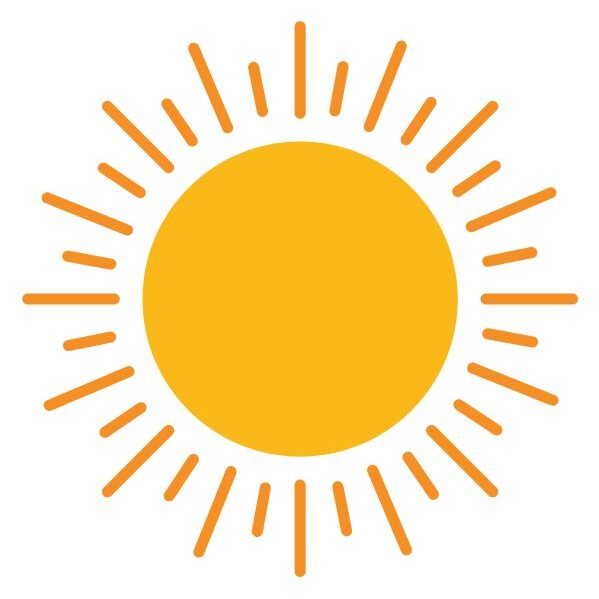*This post may contain affiliate links for which I earn commissions.*
As summer temperatures continue to rise, heatwaves are becoming more frequent and intense, catching many people off guard. In fact, recent studies show that heatwaves are now among the deadliest natural disasters, surpassing hurricanes and floods in terms of fatalities. With such startling statistics, it’s clear that being prepared for extreme heat is no longer optional—it’s essential.
Welcome to the “Coolness Quiz,” a fun yet crucial tool designed to assess just how ready you are for the next heatwave. This quiz isn’t just about gauging your current preparedness; it’s also about empowering you with the knowledge and strategies needed to keep you and your loved ones safe when the mercury soars.
Heatwaves can have severe consequences on health, the environment, and the economy. As climate change continues to amplify these events, understanding how to protect yourself becomes increasingly important. Whether it’s ensuring your home stays cool, knowing how to stay hydrated, or being prepared for potential emergencies, each step can make a significant difference.
In this article, we’ll explore the Coolness Quiz, break down its components, and provide actionable tips based on your results. Are you ready to test your preparedness and learn how to stay cool when the heat is on? Let’s dive in and see just how prepared you are for the next heatwave.
Understanding Heatwaves

Definition
A heatwave is more than just a few hot days in a row. It’s a prolonged period of excessively hot weather, often accompanied by high humidity, that poses significant health risks. Typically, heatwaves are defined based on local climate norms and can vary from region to region. For instance, what constitutes a heatwave in a temperate region may be different from one in a desert climate.
Causes
Several factors contribute to the formation of heatwaves. One primary driver is the atmospheric high-pressure system known as a heat dome, which traps heat in a specific area for an extended period. Additionally, climate change is playing a significant role in increasing the frequency and severity of heatwaves. The rise in global temperatures means that once-rare extreme heat events are becoming more common. Urban heat islands, where concrete and asphalt absorb and retain heat, also exacerbate the intensity of heatwaves in cities.
Impact
The impacts of heatwaves can be devastating and far-reaching. From a health perspective, heatwaves can lead to heat exhaustion, heatstroke, and even death, particularly among vulnerable populations such as the elderly, children, and those with pre-existing health conditions. The environment also suffers as prolonged high temperatures can cause droughts, wildfires, and stress on water supplies. Economically, heatwaves can strain energy resources due to increased demand for air conditioning, disrupt agricultural production, and lead to significant financial losses.
Understanding these aspects of heatwaves underscores the importance of being prepared. With the right knowledge and precautions, you can mitigate the adverse effects of extreme heat and ensure the safety and well-being of yourself and your community. This is where the Coolness Quiz comes into play—helping you assess your preparedness and providing insights on how to improve it.
The Coolness Quiz

Purpose
The Coolness Quiz is designed to evaluate your current level of preparedness for heatwaves and to educate you on how to improve it. By taking this quiz, you can identify gaps in your readiness and learn practical steps to enhance your ability to stay safe and comfortable during extreme heat events.
Structure
The quiz is straightforward and engaging, consisting of multiple-choice questions and scenario-based inquiries. These questions cover a broad range of topics, from your home environment to your personal habits and emergency plans. Each section of the quiz targets a specific aspect of heatwave preparedness, ensuring a comprehensive assessment.
Scoring System
After completing the quiz, you will receive a score that reflects your preparedness level. The scoring system is designed to be easy to interpret:
- 0-40 Points: Low Preparedness – Indicates that you may not be adequately prepared for a heatwave. Immediate action is recommended to improve your readiness.
- 41-70 Points: Moderate Preparedness – Suggests that you have some measures in place but could benefit from additional precautions and knowledge.
- 71-100 Points: High Preparedness – Shows that you are well-prepared for a heatwave, with most or all recommended measures already in place.
Each score range comes with tailored advice to help you improve your heatwave preparedness, regardless of where you currently stand.
Quiz Content
Personal Readiness
Home Environment
- How well insulated is your home?
- a) Very well insulated (10 points)
- b) Moderately insulated (7 points)
- c) Poorly insulated (4 points)
- d) Not insulated at all (0 points)
2. Do you have air conditioning in your home?
- a) Yes, and it is well-maintained and regularly serviced (10 points)
- b) Yes, but it needs maintenance (7 points)
- c) No, but I use other cooling methods (5 points)
- d) No, and I have no alternative cooling methods (0 points)
3. How do you ventilate your home during a heatwave?
- a) Use air conditioning and close windows during the day, ventilate at night (10 points)
- b) Use fans and open windows throughout the day (7 points)
- c) Keep windows closed at all times (4 points)
- d) No specific ventilation strategy (0 points)
Hydration and Nutrition
- How much water do you drink on a typical day during a heatwave?
- a) 8-10 glasses or more (10 points)
- b) 5-7 glasses (7 points)
- c) 3-4 glasses (4 points)
- d) Less than 3 glasses (0 points)
5. Which foods do you prioritize eating during a heatwave?
- a) Fruits and vegetables with high water content (10 points)
- b) Balanced meals with a mix of protein, carbs, and fats (7 points)
- c) Mostly snacks and processed foods (4 points)
- d) I don’t change my diet (0 points)
Clothing and Sun Protection
- What type of clothing do you wear during a heatwave?
- a) Light, loose-fitting, and breathable clothing (10 points)
- b) Regular everyday clothing (7 points)
- c) Tight or heavy clothing (4 points)
- d) I don’t pay attention to clothing choices (0 points)
7. How often do you apply sunscreen when going outside during a heatwave?
- a) Always, and I reapply as needed (10 points)
- b) Sometimes, but not consistently (7 points)
- c) Rarely (4 points)
- d) Never (0 points)
Emergency Preparedness
First Aid and Health
- Can you identify the symptoms of heat exhaustion and heatstroke?
- a) Yes, I know the symptoms and the appropriate first aid (10 points)
- b) I know some symptoms but not all (7 points)
- c) I have a general idea but need more information (4 points)
- d) No, I don’t know the symptoms (0 points)
Emergency Kits
- What items do you have in your heatwave emergency kit?
- a) Water, non-perishable food, cooling packs, first aid supplies (10 points)
- b) Some of the above items (7 points)
- c) Only a few basic items (4 points)
- d) I don’t have an emergency kit (0 points)
Evacuation Plans
- Do you have an evacuation plan for extreme heat situations?
- a) Yes, and it is well-communicated with my household (10 points)
- b) Yes, but it is not well-communicated (7 points)
- c) I have thought about it but not made a plan (4 points)
- d) No, I don’t have an evacuation plan (0 points)
Community Involvement
Supporting Vulnerable Populations
- How do you assist vulnerable populations during a heatwave?
- a) Regularly check on elderly neighbors, children, and pets (10 points)
- b) Occasionally check on them (7 points)
- c) Rarely check on them (4 points)
- d) I don’t check on them (0 points)
Community Resources
- Are you aware of local cooling centers and community support services?
- a) Yes, and I know how to access them (10 points)
- b) Yes, but I’m not sure how to access them (7 points)
- c) I’ve heard of them but don’t know details (4 points)
- d) No, I’m not aware of them (0 points)
By answering these questions, you can get a clear picture of your readiness for a heatwave. Each answer corresponds to points that help you determine your overall preparedness level. Use the provided recommendations to improve any areas where you may be lacking. Stay safe and stay cool!
Results and Recommendations
Interpreting Results
Once you’ve completed the Coolness Quiz and received your score, it’s time to understand what that score means for your heatwave preparedness. Here’s a breakdown of the score ranges and their implications:
- 0-40 Points (Low Preparedness): This score indicates that you might not be ready to handle the next heatwave effectively. It suggests that there are several critical areas where you need to improve your preparedness to ensure your safety and comfort during extreme heat events.
- 41-70 Points (Moderate Preparedness): If you fall into this range, you have some basic measures in place, but there are still significant improvements to be made. You’re on the right track, but additional steps will help you become more resilient against heatwaves.
- 71-100 Points (High Preparedness): A high score reflects a strong level of preparedness. You have most, if not all, of the recommended measures in place to protect yourself and your household during a heatwave. However, there may still be minor areas where you can fine-tune your readiness.
Improvement Tips
For Low Scores
- Upgrade Home Insulation: Improve the insulation in your home to keep it cooler during heatwaves. Consider installing energy-efficient windows and using heat-reflective roofing materials.
- Invest in Cooling Solutions: Ensure you have functional air conditioning units or alternative cooling methods like evaporative coolers. Maintain and clean these systems regularly.
- Create a Hydration Plan: Establish a routine to drink water frequently, and avoid drinks that can dehydrate you, such as alcohol and caffeinated beverages.
- Assemble an Emergency Kit: Put together a heatwave emergency kit with essentials like water, non-perishable food, cooling packs, and first aid supplies.
For Moderate Scores
- Enhance Sun Protection: Use UV-blocking window treatments and wear protective clothing, hats, and sunscreen when outdoors.
- Learn First Aid: Familiarize yourself with the symptoms of heat-related illnesses and basic first aid procedures to handle emergencies.
- Develop an Evacuation Plan: Ensure you have a clear evacuation plan and know the locations of local cooling centers. Communicate this plan with your family or household members.
- Support Your Community: Get involved in community initiatives that support vulnerable populations during heatwaves, such as checking in on elderly neighbors or volunteering at cooling centers.
For High Scores
- Fine-tune Your Preparedness: Review and update your emergency plans and kits regularly to ensure they are up to date with the latest recommendations.
- Stay Informed: Keep up with local weather forecasts and heatwave warnings. Sign up for alert systems that notify you of extreme heat events.
- Promote Heatwave Awareness: Share your knowledge and resources with others. Encourage friends, family, and neighbors to take the Coolness Quiz and improve their preparedness.
- Optimize Home Efficiency: Consider advanced home cooling techniques like installing smart thermostats, using energy-efficient appliances, and exploring renewable energy options.
Importance of Continued Preparedness

Adapting to Climate Change
As climate change continues to increase the frequency and intensity of heatwaves, ongoing adaptation is crucial. Staying prepared for extreme heat events requires continuous effort and updates to your strategies.
Staying Updated
Heatwave preparedness is not a one-time effort. Staying informed about weather forecasts, heatwave warnings, and new recommendations is essential to ensure your readiness. Regularly review and update your emergency plans and supplies.
Community Resilience
Building a resilient community is key to surviving and thriving during heatwaves. Participate in community initiatives, share resources, and support vulnerable populations to create a network of preparedness that benefits everyone.
Conclusion
In conclusion, the Coolness Quiz is a valuable tool for assessing and improving your heatwave preparedness. By understanding your current level of readiness, identifying areas for improvement, and taking actionable steps, you can protect yourself and your loved ones during extreme heat events. Take the quiz, implement the recommendations, and share your newfound knowledge with your community. Remember, staying cool and safe during a heatwave is not just about individual efforts—it’s about building a culture of preparedness and resilience.
Related articles, read more about:
How to Stay Cool at Summer Festivals and Outdoor Events | Heat Wave Hacks
Ultimate Guide to Choosing the Best Beach Tent or Sunshade | Heat Wave Hacks
Effective Ways to Stay Cool During a Heatwave | Heat Wave Hacks
🙋♀️ For more detailed reviews and tips on staying cool, be sure to explore other posts on our website. Check out our in-depth product reviews to find the best cooling solutions for your needs. Don’t forget to share your own experiences and tips in the comments below. Stay cool and beat the heat with Heatwave Hacks!

